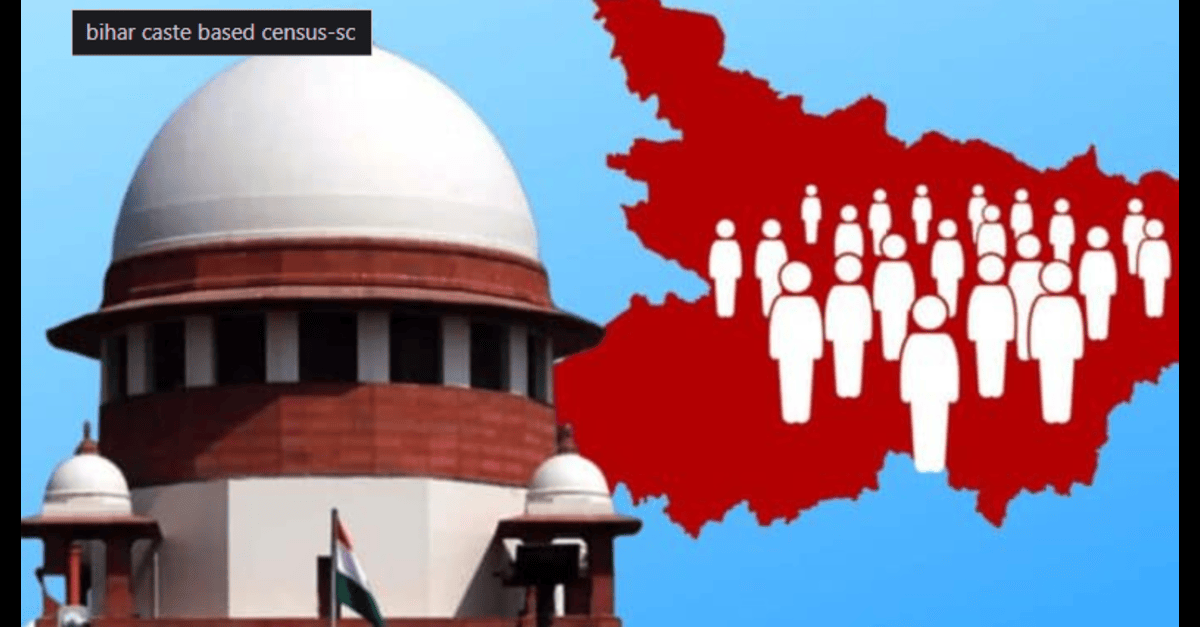CASE NAME: UNION OF INDIA & ORS vs ROHIT NANDAN
CASE NO.: Civil Appeal No. 14394 of 2024
DATED: December 13, 2024
QUORUM: Hon’ble Justice Pamidighantam Sri Narasimha
FACTS OF THE CASE
According to the petitioner, the brief facts are that the petitioner was appointed as a Postal Assistant in the year 1997 in the Other Backward Class (OBC) category by the Patna High Court MJC No. 1572 of 2023(7) dt.07- 11- 2023 on the basis of his “Tanti” caste certificate. The Government of Bihar, by gazette notification dated 2nd July, 2015, had removed the ‘Tanti’ caste from the list of OBCs to enable it to avail the benefits of the Scheduled Caste (SC) category by merging it with the Pan/Swasi caste appearing in the list of scheduled castes. The petitioner, after being notified in the Gazette, obtained a Scheduled Caste certificate as a member of Pan/Swasi caste from the office of the District Magistrate, Patna on 29.09.2015 and requested the Postmaster General of Patna on 23.06.2016 to change his category from OBC to Scheduled Caste in his service book in accordance with the new caste certificate and the said Gazette notification. The petitioner, who was at that time promoted to the cadre of Inspector, applied for promotion to Group ‘B’ Postal Services through the Limited Departmental Level Competitive Examination (LDCE) as notified on 10.07.2016, as a SC candidate and appeared for the examination on 18.12.2016. He was declared a passer in the video announcement on 16 April 2018, however his name was not approved for promotion and the results were suspended pending additional review of the video announcement on 6 September 2018. Meanwhile, the office of the Eastern Regional Postmaster General, Bihar, Patna issued an order on 17.08.2018 to change the category of the petitioner to SC in his service book. The Department of Posts after consulting the Ministry of Justice and Social Empowerment directed the media vide on 14.02.2019 that the petitioner is not entitled to SC benefit as he is not a SC and to remove his name from the list of candidates who passed the examination on 14.02.2019. Being aggrieved by the said Decree dated 14.02.2019, the petitioner filed an application OA/050/00289/2019 before the Central Administrative Tribunal, Patna Branch, Patna, on 14.02.2019, but the application was dismissed.
Hence the present appeal.
ISSUES OF THE CASE
- Is Bihar government legally competent to classify the Tanti caste a Scheduled Caste under article 341 of the constitution?
- Is respondent entitled to enjoy SC benefits by the notifications and his caste certificate?
LEGAL PROVISION
- Article 341 of the Indian Constitution: This article gives the President the to specify the castes, races or tribes and the same shall be deemed to be Scheduled Castes in any State or Union territory. It also allows the Parliament to include or exclude (as the case maybe) any caste, race or tribe from the list of Scheduled Castes by law.
CONTENTIONS BY THE ACCUSED AND PROSECUTION
NO CONTENTIONS WERE GIVEN IN THE JUDGEMENT
JUDGEMENT
A bench of two judges found that the 2015 notification issued by the state government of Bihar, putting the Tanti caste, into the SC list as was unconstitutional. Article 341 is the only authority whereby the Scheduled Caste list is changed by Parliament, and the state’s action here is void. The court declared that the respondent cannot be granted SC benefits because the notification is illegal. Equitable considerations, as accorded in similar cases like Dr. Bhim Rao Ambedkar Vichar Manch Bihar, are not applicable here because the respondent’s benefit under the SC category was brief and contested from the very outset.
ANALYSIS
Judgments underline the sanctity of Article 341 in the Constitution, whereby states have been barred from amending SC or ST lists. The Court correctly reiterated this position under which any changes would again flow through Parliament for uniform application to obviate arbitrary reclassification of various populations. This establishes a salutary precedent particularly when governments find legal gimmicks in constitutional provisions to circumvent social benefits or political concessions.
The case portrays a very important procedural omission within the administration’s process of reply. The effect from a notification issued unconstitutionally by the state of Bihar in 2015 stayed on till judicial intervention reversed that notification. Delayed consultations, particularly with the Department of Social Justice and Empowerment, along with varying opinions from the lower authorities, clearly suggest the requirement for a stricter scanning through administration before handling a change of caste.
CONCLUSION
The judgment of the Supreme Court in Union of India & Ors. vs. Rohit Nandan is an important reaffirmation of constitutional canons governing caste reclassification and protects the sanctity of Article 341, provides level playing field in the reservation order, and clarifies powers of the states. Rejection of the claim did not mean that legality had to be sacrificed at altar of fairness.
This decision will set precedence for future cases involving the question of reservation policies and the reclassification of castes, so that administrative decisions strictly adhere to the constitutional mandate.
“PRIME LEGAL is a full-service law firm that has won a National Award and has more than 20 years of experience in an array of sectors and practice areas. Prime legal falls into the category of best law firm, best lawyer, best family lawyer, best divorce lawyer, best divorce law firm, best criminal lawyer, best criminal law firm, best consumer lawyer, best civil lawyer.”
WRITTEN BY: SHAKCHI VERMA


